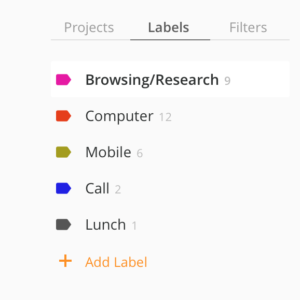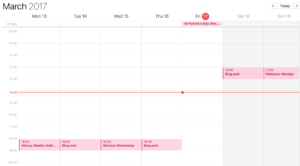Time management is an essential skill to have, especially when you are in Data School.
There are so many things that I would like to do apart from the main DS training, but there are only 24h in a day.
During one of our first weeks in DS5 Tom Brown, the founder of The Information Lab, ran a session for us where he shared his productivity tips.
I am going to share some of the things that work quite well for me, which is going to be a mixture of Tom’s tips and things I’ve been doing before.
Use a To-do App
There is a great choice of apps for every phone to create to-do lists, set reminders and keep track of things that need to be done. I think it is a personal preference which app to use, as most of them have pretty similar functions.
Why this is helpful?
I am noting every task that comes to my mind in the app, no matter how little or big it is. This way I can focus on doing things instead of remembering them.
It is also handy to have an app on the phone, as it is always with me, I can use it on the go, and it can be easily connected with email, messages and etc.
Label tasks by activity type
I find it extremely useful to add labels or tags that describe what type of activity needs to be done. For example, what do I need to do to complete a task: make a call, write an email, or spend time browsing on the internet.
Why this is useful?
When grouping tasks in such a way, my brain doesn’t need to switch from one activity to another. And while I am writing a couple of emails, I may just write one more email, rather than finding time to write it separately later.
Currently, I use the following label system. It is not perfect, but meets my current needs, and I expect it to evolve with time.

Plan in the calendar
I believe that having a to-do list by itself is not very effective. I need to know not only what I need to do, but also when I am going to do it.
Why this is effective?
I find this technique useful when I feel overwhelmed by the amount of work that needs to be done. Such calendar planning helps me to estimate the time I can spend on each task, and then keep on track with my own deadlines.
Here is an example of my weekly calendar for extra Data School activities. Sometimes I don’t follow it at the exact planned time, but it really helps me to estimate the time needed.

Don’t separate personal and work tasks
This is probably the most controversial point of all, but I totally agree with it. While it seems tempting to separate personal and work life, at the end you need to do all of the tasks.
Why this works?
If there is no need to separate them, then there is no need to make a preference and choose between professional and personal life, since I am devoting my time to both.
